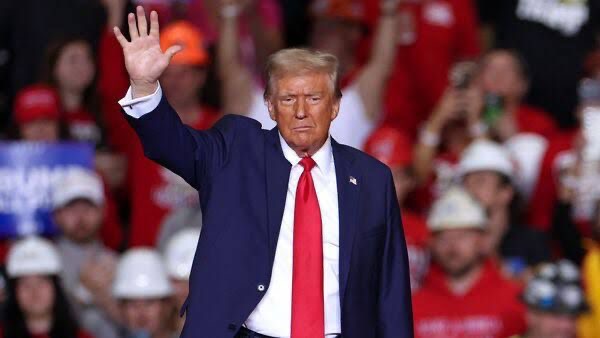Donald Trump’s return to the White House as the 47th president of the United States marks a
turning point for America and global geopolitics. With his victory, built on wins in pivotal states
like Michigan, Wisconsin, and Pennsylvania, Trump has pledged sweeping policy changes that
could significantly impact trade, diplomacy, and the global economy.
America First: A New Trade Agenda:
Central to Trump’s platform is his promise to implement aggressive tariffs on foreign goods. He
plans to impose a 25% tariff on imports from Mexico and Canada and an additional 10% on
Chinese products. These measures aim to bolster domestic manufacturing, protect American
jobs, and address trade deficits. However, these tariffs could strain relations with key trade
partners and violate existing agreements like the U.S.
-Mexico-Canada Agreement (USMCA).
Domestically, Trump’s policies are likely to reshape the U.S. economy. Industries that rely on
imports, such as electronics and automotive, may face higher costs, potentially leading to
increased prices for consumers. However, sectors focused on domestic production could see
growth, as companies are incentivized to reshore operations.
Global Trade Disruptions:
Trump’s return signals a shift toward a more protectionist trade policy, with significant global
consequences. His emphasis on tariffs and mutual agreements may upend the existing
multilateral trade order. For example, Trump has proposed tariffs as high as 60% on Chinese
goods and penalties for companies relocating production outside the U.S. These measures are
likely to provoke retaliation from major economies, escalating trade tensions.
The European Union, China, and other trading partners may respond with counter-tariffs,
creating a ripple effect across global supply chains. Businesses worldwide will face increased
uncertainty, potentially leading to higher operational costs and disruptions in international trade.
In Asia, Trump’s policies could challenge China’s economic dominance. By targeting Chinese
exports and investments in critical industries, his administration seeks to reduce U.S. reliance
on China. However, this approach risks further deteriorating U.S.
-China relations and may
compel other countries to choose sides in the escalating rivalry.
Diplomatic and Economic Fallout:
Beyond trade, Trump’s second term is likely to reshape America’s role on the global stage. His
administration’s focus on “America First” policies could strain alliances and reduce the U.S.
’s
commitment to international organizations like the World Trade Organization. This inward focus
might weaken global cooperation on pressing issues like climate change and security.
Emerging economies, particularly in Asia and Africa, may seize this opportunity to strengthen
regional trade agreements, bypassing U.S. influence. Meanwhile, countries in Europe may
deepen ties within the EU to counterbalance America’s more unilateral stance.
Impact on India:
India could benefit from Trump’s presidency through enhanced export opportunities in sectors
like auto parts, solar equipment, and chemicals, as higher tariffs on Chinese goods boost the
competitiveness of Indian products in the U.S. Lower energy costs, driven by Trump’s fossil fuel
policies and slower Chinese growth, might also favor Indian oil and gas companies.
However, challenges could arise in the form of rising inflation due to increased costs for
U.S.
-sourced materials and higher interest rates. A stronger U.S. dollar might weaken the Indian
rupee, leading to higher import costs, particularly for oil, and contributing to domestic inflation.
Navigating a New Era:
For America, Trump’s victory represents a renewed focus on domestic priorities, with a push for
reshoring jobs and boosting manufacturing. However, the global implications are far-reaching.
His policies could disrupt established trade relationships, spark revengeful measures, and
reshape international economic dynamics.
As the world adapts to this new era of American leadership, businesses and governments alike
must prepare for heightened uncertainty. Trump’s return signals a more assertive U.S. posture,
one that prioritizes national interests but may leave lasting effects on the global order.











